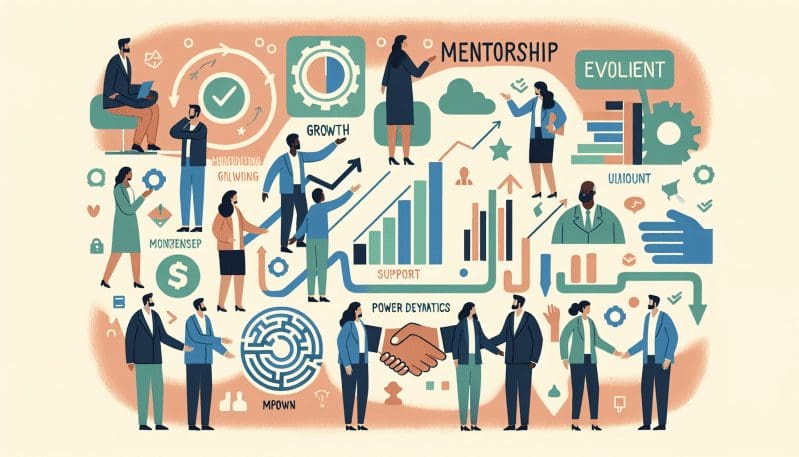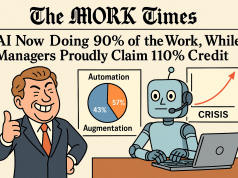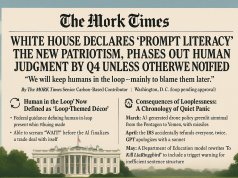As the business world evolves with technological advancements, global connectivity, and shifting societal values, the very fabric of workplace relationships transforms in concert. Among these, mentorship—an age-old practice where seasoned professionals guide emerging talent—has entered a new era. Nowadays, the classic image of a mentor as a senior executive imparting wisdom to a fresh-faced neophyte is just one of many configurations. Contemporary mentorship is increasingly characterized by fluid power dynamics, mutual learning, and diverse forms of connection. This blog delves into the transformation of mentorship in today’s dynamic work environments, shedding light on how power dynamics have shifted and how professionals can navigate these changes to create fruitful mentor-mentee relationships.
The Gig Economy and Remote Work: The rise of the gig economy and the prevalence of remote work have fractured traditional office structures, leading to more flexible and often, more isolated work experiences. This environment has cultivated a need for mentorship that extends beyond office walls and regular work hours. The mentor-mentee relationship must adapt to these circumstances, leveraging digital communication tools to maintain connection and provide support. These arrangements challenge the assumption that mentoring requires close physical proximity or a codified office hierarchy.
Diversity, Equity, and Inclusion: As industries strive for greater inclusivity, the demand for mentors who can navigate and advocate for diversity, equity, and inclusion (DEI) has heightened. The question of power is critical here; mentors must be cognizant of systemic inequities and work to create a mentorship dynamic that is accessible and empowering for all, regardless of background. This shifts the focus from traditional hierarchical mentorship to a model based more on partnership, allyship, and support.
Success Stories and Innovations in Mentorship: There are numerous instances where modern mentorship models have yielded positive outcomes. Companies that have implemented reverse mentoring programs, where junior employees mentor senior staff on areas such as technology and social media, illustrate the breakdown of traditional hierarchies. Meanwhile, peer mentoring initiatives demonstrate the value of shared experiences and collaborative learning.
Thought Leader Insights: Experts in organizational development and workplace psychology cite the importance of emotional intelligence, active listening, and adaptability as key traits for successful mentors in this new era. Furthermore, research indicates that effective mentorship can significantly impact career progression, job satisfaction, and employee retention, underlining the need for mentorship that reflects the current work climate.
The Impact on Career Development: Mentorship has always been a cornerstone for career advancement, but in a world where career paths are non-linear and skill sets rapidly evolve, the guidance of a mentor can be the difference between stagnation and growth. Modern mentorship must be tailored to individual needs and career goals, taking into account the unique challenges of today’s job market.
In conclusion, mentorship remains a powerful tool for personal and professional development, but its traditional parameters no longer suffice. The current landscape requires a redefinition of roles where both mentors and mentees bring value to the table, learning and evolving together. The workspaces of today and tomorrow demand a mentorship culture that is inclusive, flexible, and responsive to the changing tides of the world of work. By embracing these principles, professionals can forge more impactful and enduring mentor-mentee partnerships.
Actionable Strategies: It’s essential to provide readers with practical advice on fostering effective mentor-mentee relationships. Here are some strategies:
1. Embrace Technology: Utilize digital platforms to facilitate regular communication and collaboration, even when distance is a factor.
2. Prioritize Inclusivity: Design mentorship programs with DEI principles in mind, ensuring that all individuals have access to mentorship opportunities.
3. Encourage Reciprocity: Create a mentorship culture where both parties are seen as valuable contributors to the relationship, allowing for mutual growth and learning.
4. Focus on Customization: Tailor mentorship approaches to individual career goals and personal development needs, recognizing the diversity of the modern workforce.
By integrating these strategies, mentorship can continue to be a transformative experience for both mentors and mentees in the contemporary workplace.




























